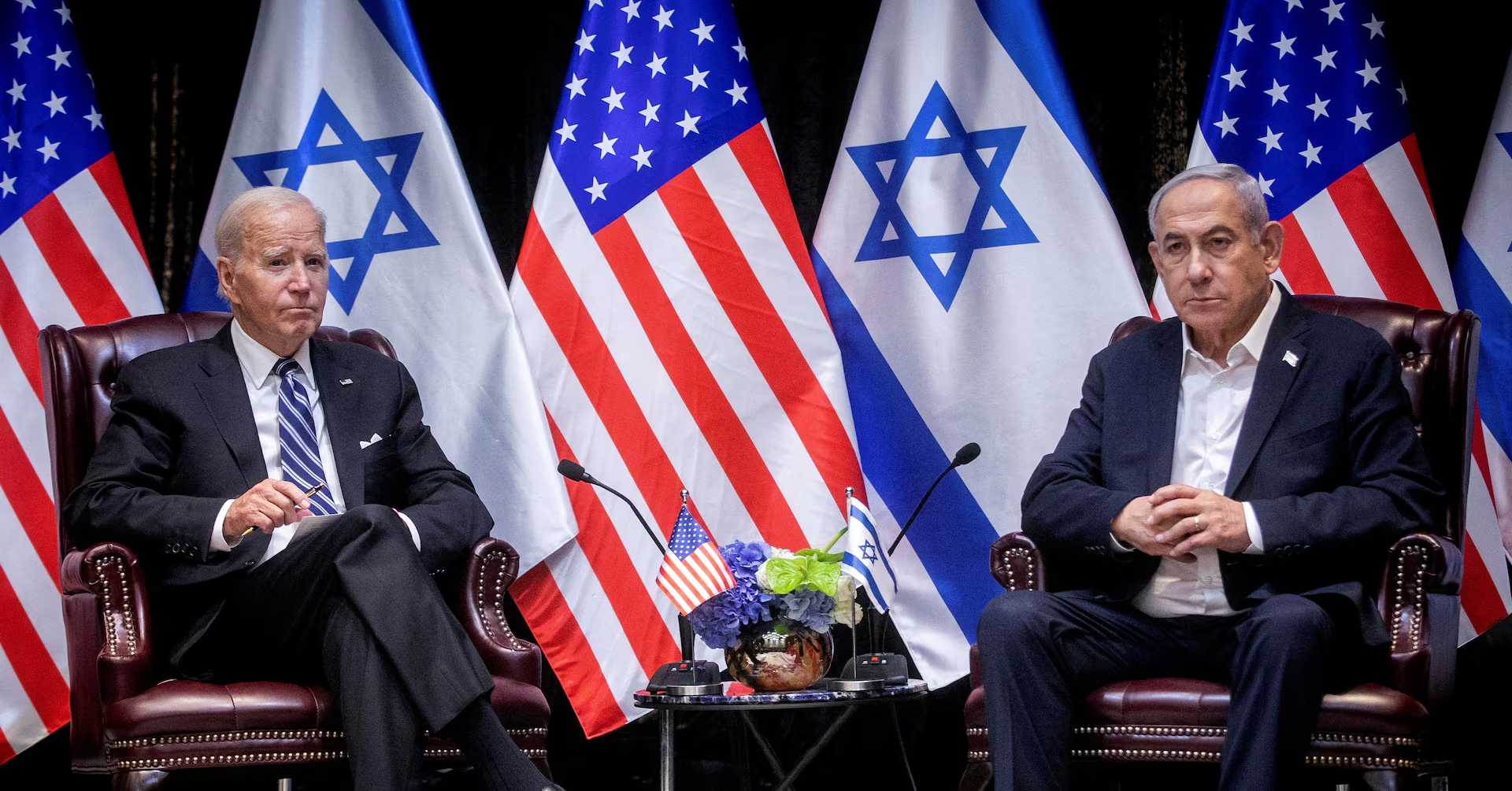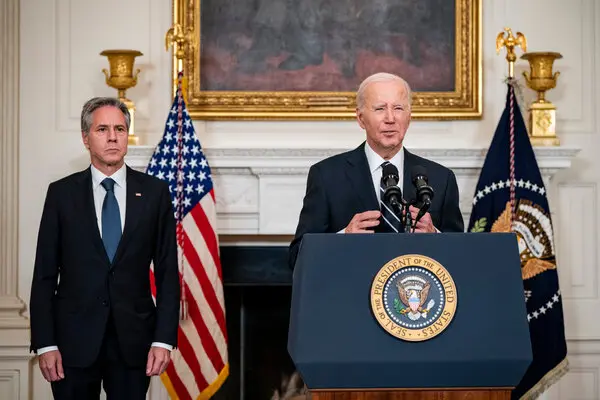As President Joe Biden nears the end of his term, his administration is adopting a new approach toward U.S. military aid to Israel, aiming to influence its ongoing confrontation with Iran and Iran-backed militant groups. This strategy involves using military assistance as both a carrot and a stick, sending a message to Israel about its military operations and its handling of the humanitarian crisis in Gaza. However, experts are unsure whether this approach will achieve Biden’s goals, such as preventing a broader regional conflict and improving conditions in Gaza.

In a significant move, the Biden administration announced on Sunday that it would send 100 soldiers to Israel, along with an advanced U.S. anti-missile system known as THAAD. The deployment comes as Israel considers a retaliatory attack on Iran after an Iranian missile strike on October 1. At the same time, the U.S. delivered a letter to Israeli Prime Minister Benjamin Netanyahu’s government, warning that it must improve the humanitarian situation in Gaza within a month or face potential restrictions on U.S. military aid.
Publicly, U.S. officials have maintained that these moves are consistent with long-standing policies aimed at ensuring Israel’s defense while advocating for the protection of civilians in Gaza. However, privately, current and former officials acknowledge that these actions signal increased U.S. involvement in Israel’s decision-making, even as Biden’s term in office comes to an end. This approach is seen as a high-stakes gamble in the midst of a deeply complex conflict.
One of Biden’s main goals is to prevent further escalation in the Middle East, especially amid growing tensions with Iran. But some experts, such as Aaron David Miller from the Carnegie Endowment for International Peace, caution that Washington is unlikely to cut back military support for Israel if the conflict with Iran intensifies. Miller noted that despite Biden’s efforts, a serious restriction on military aid would be almost unthinkable if hostilities between Israel and Iran escalate.

White House spokesperson John Kirby emphasized that the letter sent to Israel was not intended as a threat but added that the Israeli government appears to be taking the issues seriously. An Israeli official confirmed that the letter is being reviewed by security officials. On Wednesday, Israel announced that 50 aid trucks had been sent to northern Gaza, which some analysts view as a potential early response to the U.S. demands.
The Biden administration’s letter represents one of the clearest ultimatums it has issued to Israel regarding the Gaza conflict. The letter outlines specific steps Israel must take within 30 days, including allowing at least 350 aid trucks into Gaza daily. While the administration has previously pressured Israel to improve protections for civilians, this latest move raises the possibility of U.S. weapons being withheld if Israel fails to comply.
Netanyahu’s government convened an emergency meeting on Wednesday to discuss expanding humanitarian aid to Gaza, with officials indicating that aid levels may increase in the coming days. Meanwhile, the decision to deploy the THAAD system is seen as a major step in offering Israel military support while attempting to influence its conduct in the conflict.

Experts, including former defense officials, view the THAAD deployment as a significant shift, noting that it signals U.S. involvement in Israeli defense operations. This deployment also raises the stakes for Washington, as U.S. personnel are now on the ground in Israel, increasing the likelihood of direct U.S. involvement if the conflict escalates further.
As tensions rise, Biden’s goal appears to be preventing Israel from launching a large-scale strike on Iranian targets, especially nuclear or energy sites. By offering military support in the form of THAAD, the administration may be trying to discourage Israel from escalating the conflict with Iran. However, as time runs out for Biden, the outcome remains uncertain, particularly with the U.S. presidential election looming on November 5.
Should former President Donald Trump win the election, Netanyahu may have even greater leverage. Experts suggest that Netanyahu could choose to delay complying fully with U.S. demands, especially if he believes that a new, more favourable administration will soon be in place. This possibility adds further complexity to Biden’s high-stakes efforts in the region.





